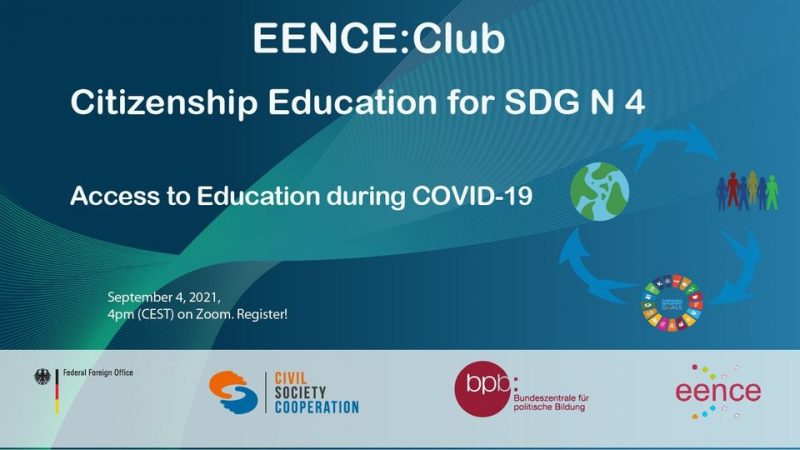How to ensure access to education during COVID-19
The next meeting within the framework of EENCE:Club will be devoted to this topic/ It will take place on September 4.
The participants of the meeting, representing civil society and the expert community, will try to rethink the existing practices and problems in the field of education in the era of the pandemic.
The discussion will take place on September 4 at 16:00 (CEST).
Working language: English
Register here!
COVID-19 has hit all the aspects of our life, creating new challenges and obstacles, also deteriorating the existing problems. Education is probably the field that has been affected most.
In our discussion we will particularly focus on the issues related to access to equity and quality education during the pandemic.
Students coming from the most vulnerable groups have endured the worst of the coronavirus disastrous effects and consequences.
The UN Department of Economic and Social Affairs (Sustainable Development) states:
“COVID-19 has wipes out 20 years of Education gains”.
Different countries adopted different policies and applied different measure to mitigate the pandemic consequences in the field of education. However, the pandemic is still here with us, and the fight continues.
Speakers
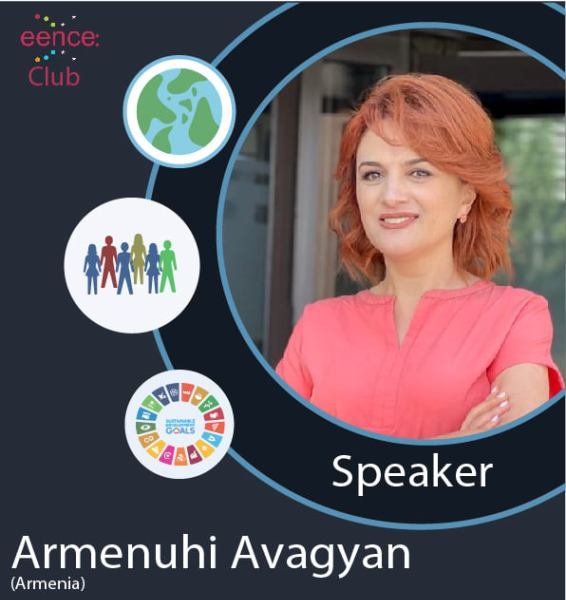
Dr. Armenuhi Avagyan (Armenia).
PhD, Associate professor, speech therapist, inclusive education expert, founder of “ARMAV” Continuous Education Center in Armenia.
She conducted her post-doctoral research as a Fulbright scholar in the USA and was a senior expert and trainer of the project “Developing Inclusive education teacher training and mentoring capacities” in Armenia.
Dr Avagyan is the author of scientific articles, editor of books on inclusive education and co-author of Inclusive Education strategies textbook.
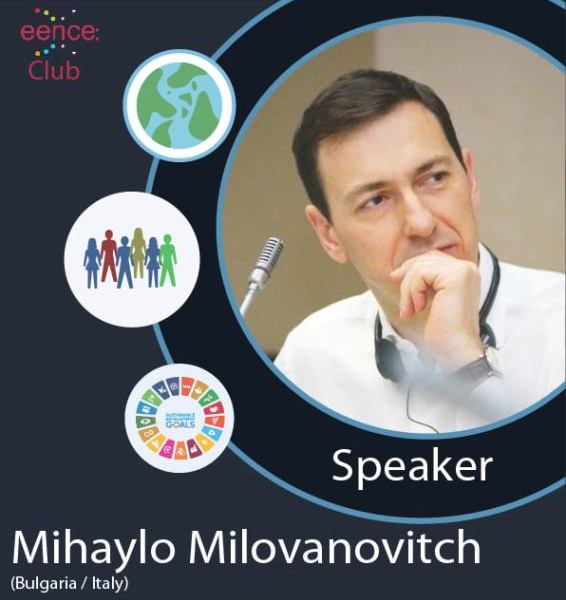
Mihaylo Milovanovitch (Bulgaria, currently based in Italy).
Senior policy specialist with the European Training Foundation, based in Italy, and a pro-bono affiliate of the Center for Applied Policy and Integrity, Bulgaria.
His research interests and publications focus on education policy analysis, corruption prevention and integrity in education, and the application of distributed ledger technologies (blockchain) in education.
Previously, Mihaylo was a research fellow with the institutional corruption initiative of Edmond J. Safra Center for Ethics at the Harvard School of Law; policy analyst with the OECD Directorate for Education and Skills, and coordinator of the education co-operation with Eastern Europe for the Federal Government of Austria and the Stability Pact for South East Europe.
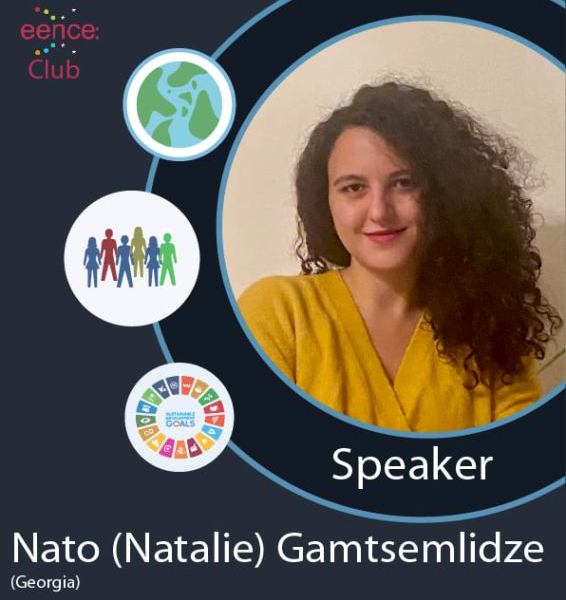
Natalie Gamtsemlidze (Georgia).
Completed her Master’s Degree in Applied Political Psychology, Civic Education Project Manager (CETF). She has experience in youth work, adult education, gender equality and organizational development. Her passions and project specialties include neuro education diversity studies, youth education, and furthering the broader causes of intercultural competencies and women empowerment.
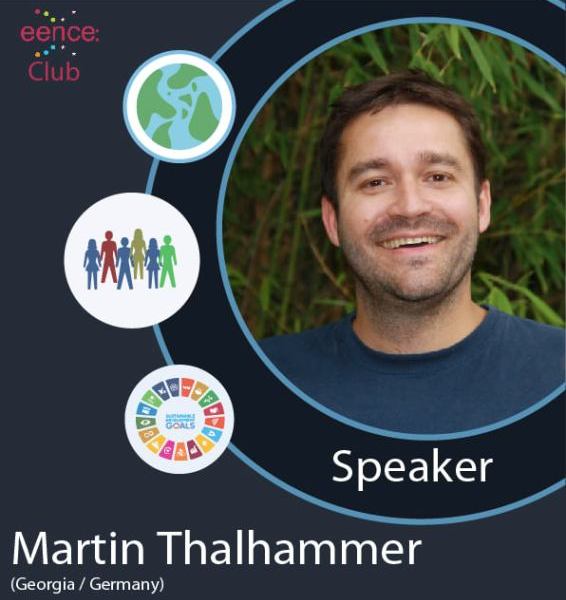
Martin Thalhammer (Germany, currently based in Georgia).
Program Advisor Civic Education Teachers Forum (CETF), trainer and educational program designer with focus on youth work, peace building and organizational development. Martin is the Initiator of the “Schülermentorenprogramm” (Peer Mentoring Program) in Bavaria, Germany.
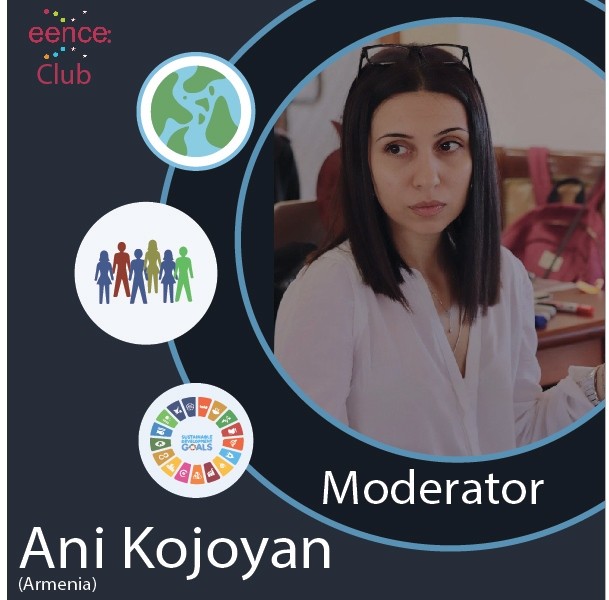
Moderator: Ani Kojoyan (Armenia).
Gender, Education and Communication Studies Expert & Researcher.Lecturer at Yerevan State University.Expert and Trainer at “Youth is Power” NGO. Over 10 years of experience in the field. Worked and collaborated with local and international CSOs, state and private organizations
EENCE:Club’s aimed at promoting democratic development and civic education through the creation of a platform for public debates and the exchange of experience. The project topics focus on the UN Sustainable Development Goals.
The project is supported by the Federal Agency for Civic Education (Bundeszentrale für politische Bildung/bpb) using funds appropriated by the Federal Foreign Office of Germany.

